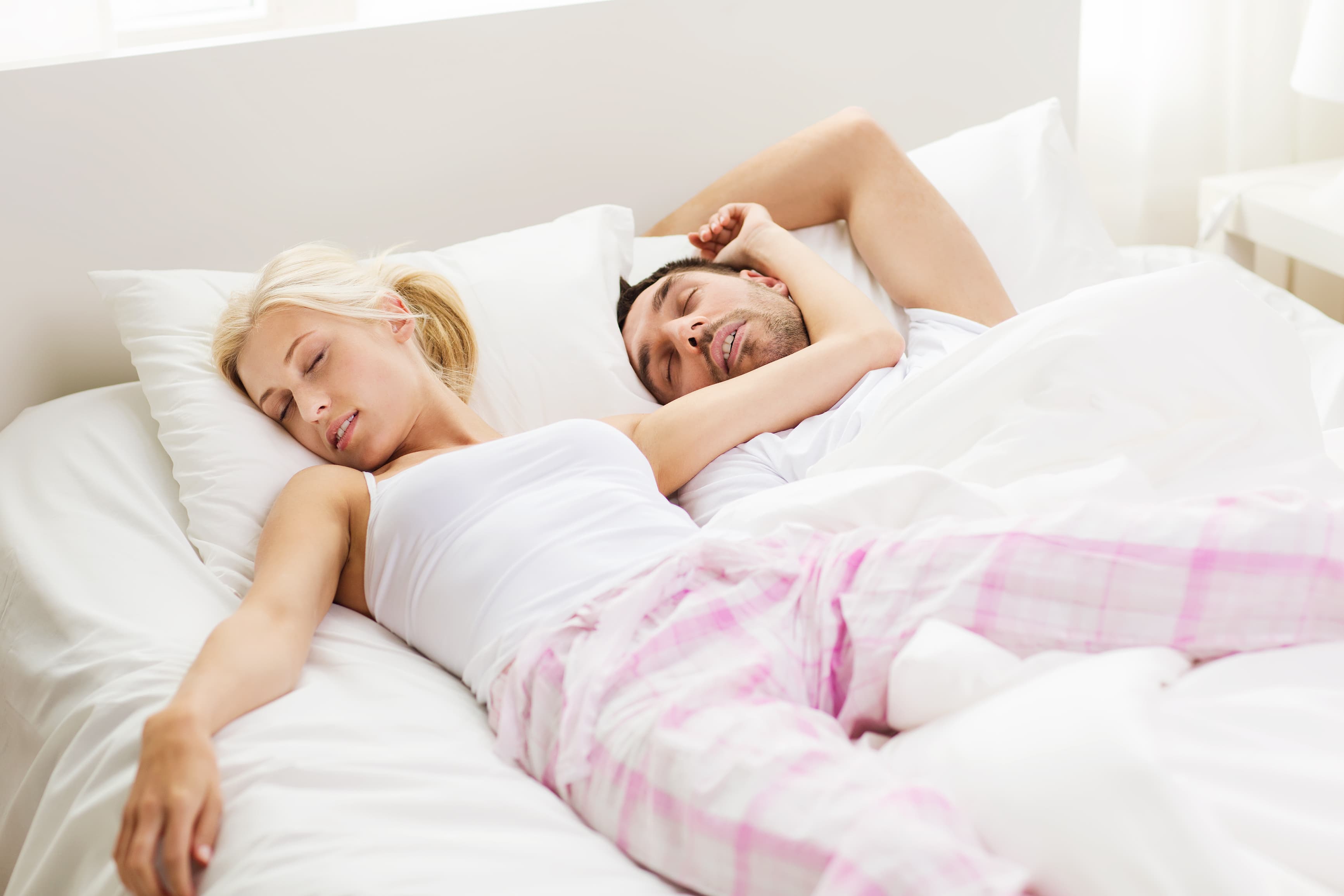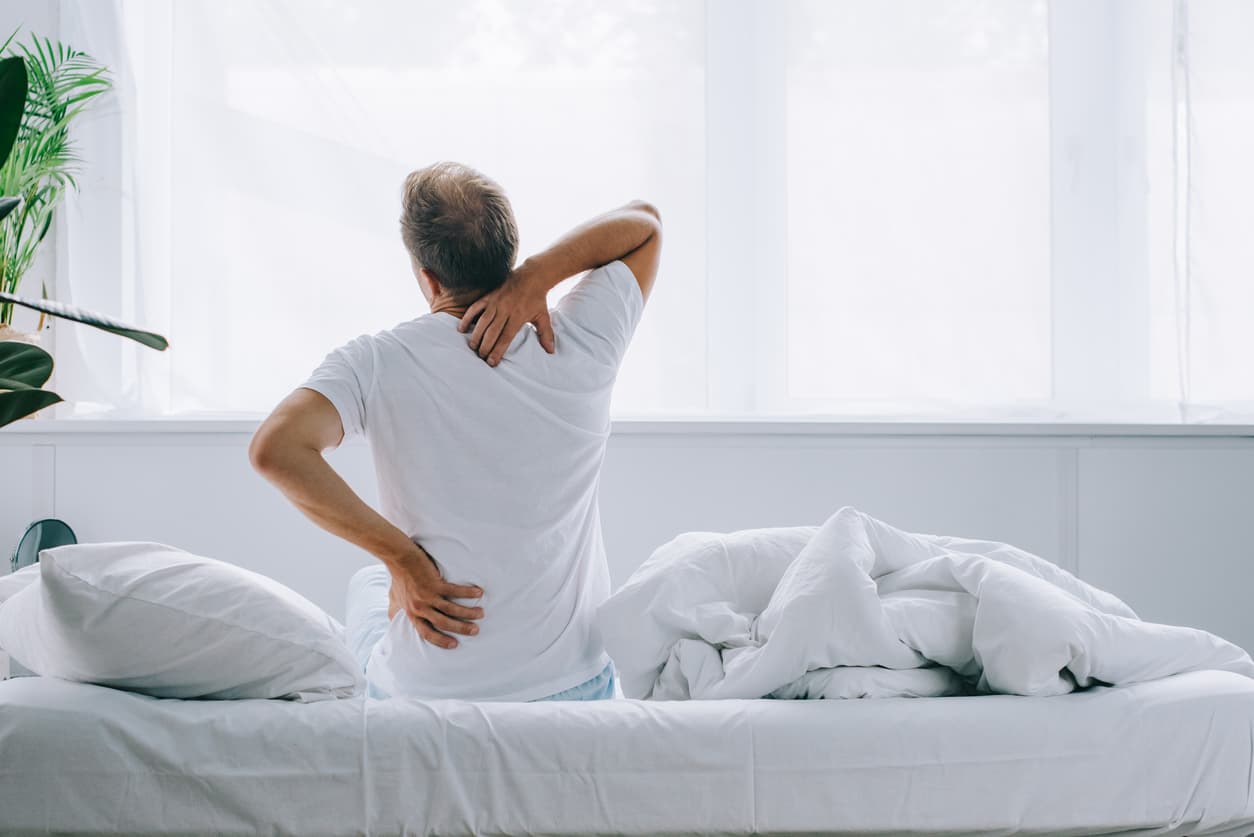Sometimes it feels like there’s so much to do and not enough hours in the day to get it all done. With the chaos of time, it’s not uncommon to be tempted to sacrifice rest in order to cross more things off your to-do list.
But that can be dangerous—sleep is essential, like air, water and food. Like a car, your body can’t run without fuel. Sleep is a (major) source of fuel.
Over time, the more sleep you miss, the greater your sleep debt and the deeper the toll it takes on your body.
Famous Cases of Sleep Deprivation
What’s the longest a human has ever gone without sleep?
There a few very famous cases of sleep deprivation in recorded history. According to the International Journal of Occupational Health and Environmental Medicine. One of the first recorded experiments took place in 1896, when three American volunteers went 90 hours without sleep (just under four days). In this study, the volunteers reportedly experienced sleep deprivation hallucinations before finally succumbing to sleep.
In 1968, two more experiments were recorded. In the first, a human went 205 hours without sleep (eight and half days). Doctors monitored the person’s vital signs and brain waves. They reported that their alpha brain waves, which are usually detectable in the average person while awake, could not be found. The volunteer appeared to undergo periods of “waking sleep.” Where their body’s vital signs mimicked those of a sleeping person. Even though the person’s eyes were open and they were able to perform some movements and functions like an awake person.
In 2007, two of the longest sleep deprivation studies ever recorded took place almost simultaneously. In the first, a 17-year-old male from California went 264 hours without sleep. In the second, a British man stayed awake for 266 hours—that’s almost 11 days.
Doctors said, for purposes of the experiment, they tried to keep the subjects awake longer. But once they started to fall asleep, they were physically incapable of waking them up.
Sleep Deprivation Symptoms
You may be surprised to learn that there's a fine line between sleep deprivation and literal psychosis. Staying awake for long periods of time begins to affect the central nervous system. Which leads the brain to release stress hormones, such as cortisol and adrenaline. And creates feelings of distorted reality, as well as auditory and visual hallucinations.
Here are some common symptoms of sleep deprivation:
Blurry vision
Visual hallucinations
Tactile hallucinations (feelings of being touched without any physical stimuli)
Hearing distortion
Mood changes
Confusion
Distorted thinking
Dissociation
Delusions
Lost sense of time
Elevated blood pressure
None of these things are pleasant, and, in fact, some sound similar to the symptoms of certain mental illnesses.
Consequences of Sleep Deprivation
While some humans (like those in the studies above) were able to pull it off and survive. There is no doubt that sleep deprivation can cause serious health issues.
According to doctors and researchers at HealthLine who created a kind of roadmap of the symptoms of sleep deprivation. The consequences of sleep deprivation become more severe the longer someone goes without sleep.
After 24 hours:
According to a study in the International Journal of Occupational Health and Environmental Medicine. Doctors found that people who have been awake continuously for 24 hours may experience many of the same symptoms as someone with a blood-alcohol concentration of 0.10 percent. Which is the legal limit for driving in most states. Other symptoms can include irritability, impaired decision-making and judgment, altered perception, memory loss, decreased hand-eye coordination, and even physical tremors.
After 36 hours:
More severe health impacts were noted after being awake for 36 hours. Your sleep-wake cycle is heavily impacted. These cycles help regulate your body’s release of certain hormones like cortisol, insulin, and the human growth hormone. When your hormone levels are off, you may experience serious side effects. Studies of people who regularly stay up 36 hours show early symptoms of diabetes, stunted growth, and severe stress. Which can lead to an altered appetite, elevated blood sugar levels, irritability, and erratic temperature shifts, as well as some speech deficits.
After 48 hours:
After 2 full days, many study subjects start to fade in and out of “microsleeps.” Or periods of about 30 seconds of involuntary sleep, even though they may appear to be awake. Another more frightening symptom at this stage of sleep deprivation is a decreased immune response. Doctors said the body’s natural killer cells that typically respond to infection, bacteria and viruses start to circulate at an increased level but with delayed response times. This means the body will have a much harder time fighting off illnesses.
After 72 hours:
At this stage of sleep deprivation, most people will have trouble completing even the most basic tasks. And many won’t be able to fight off sleep, even if they want to. In addition, researchers in one study said that “people who have undergone this level of sleep deprivation may be easily irritated.” After 72 hours without sleep, people may feel depressed, anxious, or paranoid. Some were unable to read emotions in other people, like telling the difference between anger, sadness, or happiness.
The bottom line is that while humans may be able to survive sleep deprivation? How someone’s body and mind will respond to various lengths of time without sleep varies. However, most humans will start to exhibit concerning symptoms after just 36 hours.
Acute Sleep Deprivation
When you aren’t getting your usual amount of sleep or aren’t sleeping at all for a few days, it’s considered acute sleep deprivation. This is usually caused by work obligations, lifestyle choices, poor sleep hygiene, or health issues.
Typically, this lack of sleep can be corrected with a few days of intentional bedtimes. But if it’s not addressed soon enough, it can lead to chronic sleep deprivation.
Chronic Sleep Deprivation
If you are having trouble sleeping for more than just a few nights here and there? It may be time to seek the advice of a doctor and start making some changes in your lifestyle and routine.
Chronic sleep deprivation can lead to serious health issues, including mental illness, diabetes, stroke, obesity, high blood pressure, and more.
An abnormal or poor sleep schedule can be caused by your environment, diet, or lifestyle choices. So in order for you to get your best rest. We’re sharing some of our top tips for turning your bedroom into a place that welcomes sleep night after night. (And for falling asleep more easily in general).
Tips for Better Sleep
Limit caffeine, sugar and alcohol before bed.
If possible, limit foods and beverages containing caffeine, sugar, or alcohol (three major sleep-fighting ingredients) in the four hours before bed.
You may be wondering, why alcohol? Many people think a drink before bed will make you more sleepy. But while a night cap may help you fall to sleep faster? You are more likely to wake up halfway through the night once that alcohol is digested and turns into sugar.
Make to-do lists (and plan to do them).
This may sound counterintuitive, but some sleep experts say writing things down can actually help get it off your mind. At least enough for you to be able to fall asleep. By listing everything you need to take care of the next day, the rest of the week, or even the month? You can quiet your brain and stop worrying about everything you’re afraid you’ll forget.
Limit electronics before bed.
At least an hour before bedtime, it’s best practice to turn off your screens, including phones, tablets, laptops and the like. The blue light emitted by these devices can not only be harmful to your eyes in the dark. It also stimulates your brain, which is not what you want when you’re trying to fall asleep. Let your mind and your eyes rest by reading a book or practicing some light yoga or bedtime meditation at night.
Get some sun and enjoy the fresh air.
Fresh air and natural light are great for your body. They have been found to help regulate your circadian rhythms (your body’s natural sleep clock). Also, infuse your muscles with better quality oxygen, give you a boost of natural Vitamin D. And even benefit your body’s natural melatonin levels. Fresh air and sunlight can also help your body break down lactic acid better. This can banish common aches and pains, especially when you’re sore after a workout. Try getting more fresh air in your day and see if it helps your sleep!
Cool it down in your bedroom.
As you sleep, your body temperature naturally rises, getting you ready for the morning. This is why you may sometimes wake up a little sweaty. Even if you were cold (and buried under piles of blankets) when you went to bed. So, experts recommend sleeping in a cooler room to help you fall to sleep and improve the quality of your rest.
Studies have found that wearing a cooling cap helped some insomniacs get better rest than they’d had in years. Researchers from the National Institutes of Health found that sleeping in a cool room not only helped people sleep but also increased their metabolism. Experts say that setting your thermostat between 60 to 67 degrees is optimal for better rest.
Reduce distractions in the bedroom.
If you have trouble getting your brain to quiet down at the end of the night, try reducing distractions in the bedroom. Turn off the TV, put away your work documents and pull out your eye mask. Many people find that white noise or other soothing sounds in the background can help quiet the mind. If your thoughts are too loud in total silence. You may even want to try blackout curtains if light outside your bedroom window is too distracting (it’s best to sleep in the complete dark).
Try meditation or relaxing yoga at night.
Turn off the electronics and opt instead for a good book. Or some meditation or relaxing yoga, which have all been found to help usher in sleep. They help quiet your mind so you can get the rest you need.
Create your sleep sanctuary.
Creating an environment that promotes relaxation and in turn, a good night’s sleep, can be the key to better rest. Consider making simple changes to your bedroom to make it a place worth resting in. These can be simple things like de-cluttering to reduce stress, finding the coziest lounge wear you can. Or softening the lighting in the room with smaller table lamps.
Or candles and adding small touches of nature (the Danish call this finding hygge). All of these things can help your bedroom feel more serene, making you feel more relaxed the second you walk in the door.
It’s also beneficial to make sure what you’re resting on is comfortable and good for your body. Having the right mattress is key to making your bedroom as comfortable and relaxing and possible. An old or unsupportive mattress can leave you with aches and pains and keep you from getting good rest. When buying a mattress, it’s important to choose one that properly supports your head, neck and back. This keeps your spine in proper alignment while you sleep (while also providing enough support for your shoulders and hips).



